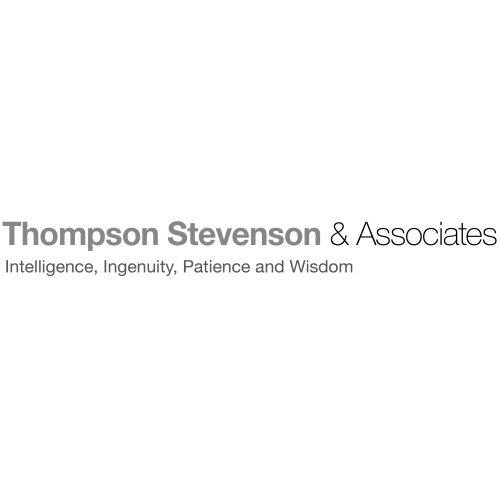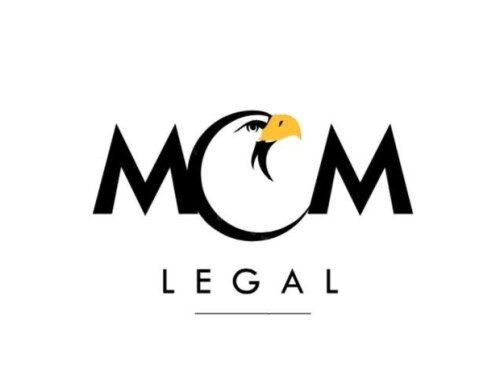Best Antitrust Litigation Lawyers in Zimbabwe
Share your needs with us, get contacted by law firms.
Free. Takes 2 min.
Or refine your search by selecting a city:
List of the best lawyers in Zimbabwe
About Antitrust Litigation Law in Zimbabwe
Antitrust litigation in Zimbabwe deals primarily with legal actions related to anti-competitive conduct and unfair business practices. The purpose of antitrust laws is to uphold competition within the market, protect consumer rights, maintain fair prices, and avoid the creation of monopolies or cartels. These laws are enforced by government agencies and provide the framework for both civil and criminal action against businesses or individuals who engage in conduct that restricts competition. In Zimbabwe, this field of law has gained increasing importance as the economy has opened up and diversified, making a fair marketplace essential for long-term growth and consumer welfare.
Why You May Need a Lawyer
Antitrust litigation is a specialized and complex area of law. You may require professional legal assistance for a variety of reasons, including:
- If you believe your business is a victim of anti-competitive behaviour, such as price-fixing or bid-rigging by competitors
- If you or your business are accused of engaging in restrictive practices or abusing a dominant market position
- When merging with, acquiring, or forming joint ventures with other companies, which may trigger antitrust reviews or investigations
- If you are subject to an investigation by the Competition and Tariff Commission or any relevant authority
- To provide guidance and compliance training for your business in order to avoid inadvertent breaches
- If you need to defend civil or criminal litigation concerning alleged restrictive business practices
- If you want to report suspected anti-competitive practices in your industry
Local Laws Overview
The main legal framework governing antitrust and competition law in Zimbabwe is the Competition Act [Chapter 14:28]. The Act prohibits anti-competitive agreements, abuse of a dominant position, and certain mergers that may restrict competition. Key points include:
- The Competition and Tariff Commission (CTC) is the principal regulatory body responsible for enforcing antitrust laws
- The Act outlines prohibited practices such as price-fixing, market allocation, collusive tendering, and resale price maintenance
- Businesses with substantial market power must avoid abusive conduct, such as predatory pricing or refusing to supply certain customers
- Mergers and acquisitions above certain thresholds require notification to the CTC for review and approval
- The Act provides for both civil and criminal penalties for infringement, including fines and imprisonment
- Complaints can be initiated by individuals, businesses, or the CTC itself
Frequently Asked Questions
What is considered anti-competitive behaviour under Zimbabwean law?
Anti-competitive behaviour includes agreements or practices that prevent, restrict, or distort competition. Examples include price-fixing, bid-rigging, dividing territories among competitors, and abusing a dominant market position.
Who enforces antitrust laws in Zimbabwe?
The Competition and Tariff Commission is the main authority responsible for investigating and enforcing antitrust law in Zimbabwe.
What are the consequences of violating antitrust laws?
Consequences can include fines, imprisonment, reversal of anti-competitive agreements, and orders to cease the infringing behaviour. Companies and individuals may also be sued for damages by affected parties.
Can mergers be blocked in Zimbabwe?
Yes, the CTC has the power to investigate and block mergers that are likely to substantially lessen competition or create a dominant position in any market.
Is it possible for small businesses to be involved in antitrust cases?
Yes, any business, regardless of its size, can be involved in antitrust cases if it is found to be engaging in or affected by anti-competitive practices.
How can I file a complaint about anti-competitive behaviour?
Complaints can be filed directly with the Competition and Tariff Commission. It is advisable to seek legal guidance to ensure that your complaint is properly documented and supported by evidence.
What should I do if my business is investigated for antitrust violations?
It is crucial to seek immediate legal counsel. An experienced antitrust lawyer can advise you on your rights and obligations, help you respond to inquiries, and represent you during investigations or court proceedings.
Are there exemptions from antitrust laws?
Some activities may be exempt if they are deemed to be in the public interest or are specifically authorized by law. However, these exemptions are limited and must be approved by the CTC.
Does consumer harm need to be proven in order to succeed in an antitrust claim?
Usually, demonstrating that the conduct had, or could have, negative effects on competition or consumers is a part of making a successful claim. Legal advice is necessary for presenting a strong case.
How long does an antitrust investigation or litigation take?
The duration varies depending on the complexity of the case, the amount of evidence involved, and whether the case goes to court. Simple investigations may be resolved in months, while complex litigation can take several years.
Additional Resources
If you are seeking information or need to report anti-competitive practices in Zimbabwe, the following resources and organizations may be helpful:
- Competition and Tariff Commission (CTC) - The main regulatory body for competition law matters
- Ministry of Industry and Commerce - For policy direction and sector-specific concerns
- Zimbabwe Law Society - For referrals to qualified lawyers experienced in antitrust litigation
- Local business chambers and consumer protection organizations - For business support and consumer advice
Next Steps
If you believe you need assistance with an antitrust matter, consider the following steps:
- Document any relevant details of your concern or dispute, including names, dates, agreements, and communications
- Consult with an experienced antitrust lawyer who understands the nuances of Zimbabwean law
- Contact the Competition and Tariff Commission if you wish to make a formal complaint
- Engage in any investigations transparently and seek legal advice throughout the process
- Keep records of all correspondence and actions taken in relation to your case
Antitrust litigation is complex and potentially high-stakes. Early and informed legal guidance can make a significant difference in protecting your interests and ensuring compliance with local laws.
Lawzana helps you find the best lawyers and law firms in Zimbabwe through a curated and pre-screened list of qualified legal professionals. Our platform offers rankings and detailed profiles of attorneys and law firms, allowing you to compare based on practice areas, including Antitrust Litigation, experience, and client feedback.
Each profile includes a description of the firm's areas of practice, client reviews, team members and partners, year of establishment, spoken languages, office locations, contact information, social media presence, and any published articles or resources. Most firms on our platform speak English and are experienced in both local and international legal matters.
Get a quote from top-rated law firms in Zimbabwe — quickly, securely, and without unnecessary hassle.
Disclaimer:
The information provided on this page is for general informational purposes only and does not constitute legal advice. While we strive to ensure the accuracy and relevance of the content, legal information may change over time, and interpretations of the law can vary. You should always consult with a qualified legal professional for advice specific to your situation.
We disclaim all liability for actions taken or not taken based on the content of this page. If you believe any information is incorrect or outdated, please contact us, and we will review and update it where appropriate.
Browse antitrust litigation law firms by city in Zimbabwe
Refine your search by selecting a city.














